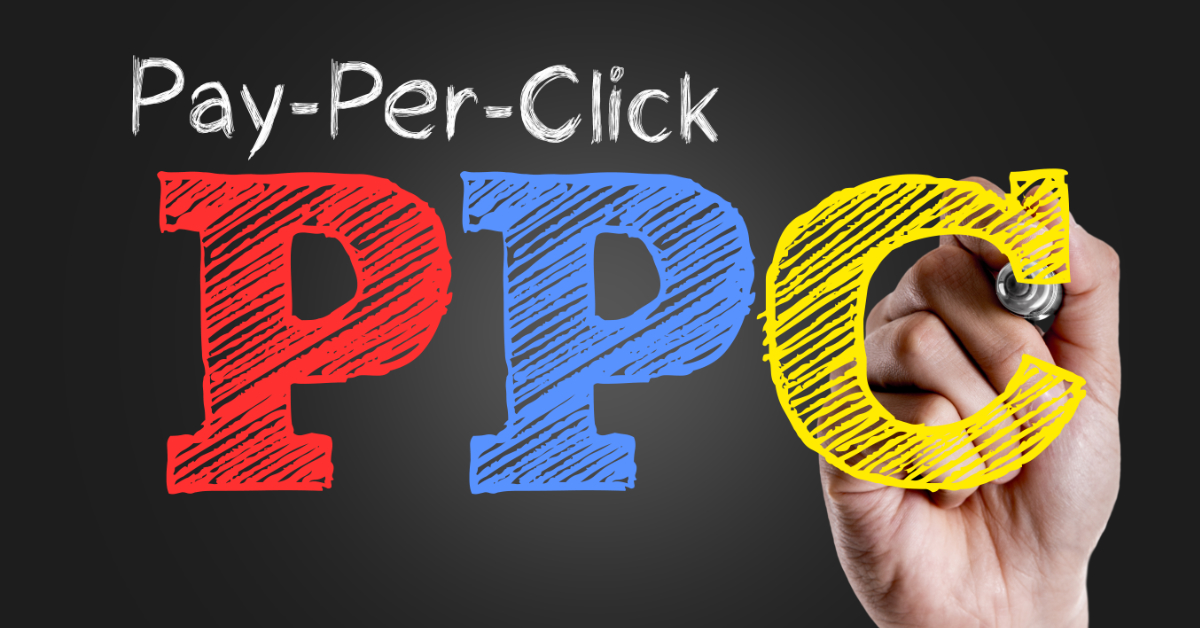Are you interested in advertising your business online and wondering about the costs associated with Google Ads? Look no further! This comprehensive guide will delve into the world of Google PPC Pricing, providing the information you need to make informed decisions about your Google Ads campaigns. We’ll cover everything from understanding the average costs to exploring bid management strategies and maximizing return on investment (ROI). Get ready to unravel the mysteries of Google Ads costs and discover how to make the most of your advertising budget.
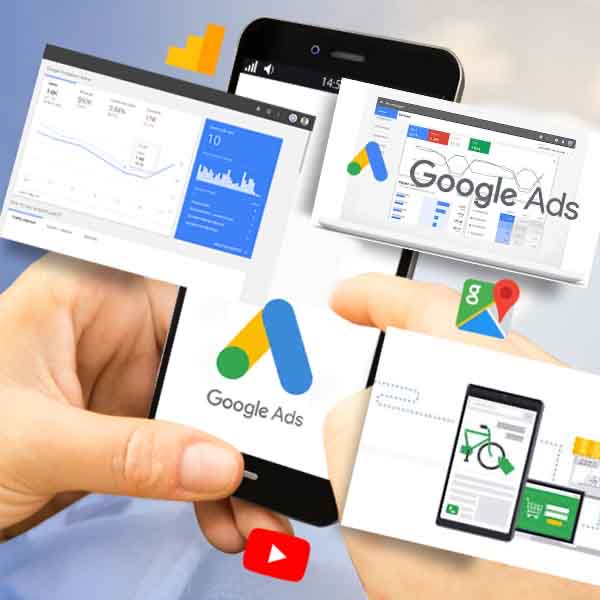
Understanding Google Ads
Google Ads, also known as Google AdWords, is a powerful online advertising platform that allows businesses to promote their products or services to a wide audience. This advertising platform operates on a pay-per-click (PPC) model, where advertisers pay only when users click their ads.
Google Ads leverages the massive reach of Google’s search engine and the extensive Google Display Network to display ads in various formats, including text, image, and video. It allows advertisers to target their ads based on specific keywords, demographics, interests, and locations, ensuring their message reaches the right audience.
How Does Google Ads Work?
When a user enters a search query into Google or visits a website within the Google Display Network, Google Ads utilizes a complex auction system to determine which ads to display. This process considers factors such as keyword relevance, ad quality score, bid amount, and other factors contributing to an ad’s overall rank.
Ad Rank: The Key to Ad Placement
Ad rank determines where and when your ads appear. It is determined by multiplying your maximum bid (the most you’re willing to pay per click) by your ad’s quality score. The quality score is influenced by factors such as the relevance of your keywords, the quality and relevance of your ad copy, and the performance of your landing page.
Understanding Quality Score
Quality score is a metric used by Google Ads to assess the relevance and quality of your ads and landing pages. A higher quality score can lead to better ad rankings and lower costs. Google rewards advertisers who provide a positive user experience by displaying their ads more prominently.
Keyword Research: The Foundation of Successful Campaigns
Keyword research is critical in setting up effective Google Ads campaigns. By identifying the keywords and phrases most relevant to your business, you can optimize your campaigns to target the right audience. Tools like the Google Keyword Planner can help you discover keywords with high search volume and understand their competitiveness.
Ad Groups and Ad Copy
Organizing your ads into ad groups allows for better campaign management. Each ad group consists of keywords and a corresponding ad copy that aligns with those keywords. Crafting compelling ad copy that captures users’ attention and communicates your value proposition is essential to drive clicks and conversions.
Landing Page Experience: Turning Clicks into Conversions
While Google Ads drives traffic to your website, the landing page determines whether users take the desired action. A well-designed and optimized landing page that aligns with the ad’s intent can significantly improve your conversion rates. Factors like page load speed, clear call-to-action (CTA), and relevant content contribute to a positive landing page experience.
The Power of Tracking and Analytics
Google Ads provides robust tracking and analytics tools, such as Google Analytics, to monitor the performance of your campaigns. These insights enable you to measure key metrics like click-through rates (CTRs), conversion rates, and return on ad spend (ROAS). Analyzing this data allows you to optimize your campaigns and make data-driven decisions to improve your results.
Understanding the fundamentals of Google Ads is crucial for success with your online advertising efforts. You can create compelling campaigns that reach your target audience and drive meaningful results by mastering the art of ad rank, keyword research, ad groups, and optimizing landing pages.
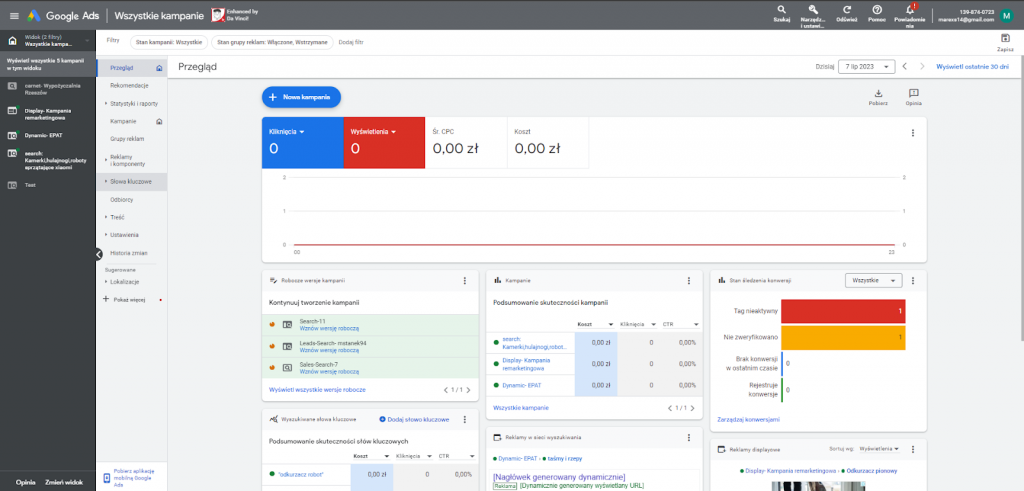
How Much Google Ads Cost?
When it comes to Google Ads costs, there is no one-size-fits-all answer. The expenses of running Google Ads campaigns can vary widely based on several factors. On average, businesses allocate a monthly budget ranging from $1,000 to $10,000 for their Google Ads spend.
One of the primary cost components of Google Ads is the cost per click (CPC). The CPC is the amount you pay when someone clicks on your ad. For the Google Search network, the average CPC typically falls between $1 and $2. On the other hand, the average CPC for the Google Display Network is around $1 in 2023.
Factors Affecting Google Ads Pricing
Google Ads pricing is influenced by numerous factors that determine the cost and competitiveness of your campaigns. Understanding these factors is crucial for optimizing your ad spend and achieving a favorable return on investment (ROI). Here are some key elements that impact Google Ads pricing:
Ad Rank and Quality Score
Your maximum bid and ad quality score determine ad rank. A higher ad rank leads to better ad placement and lower costs. The relevance and quality of your keywords, ad copy, and landing page experience influence your quality score.
Keyword Competitiveness
Highly competitive keywords often come with higher costs. Advertisers bidding on popular and in-demand keywords may need to allocate a larger budget to compete effectively in the ad auction.
Industry Competition
The competitiveness of your industry within the Google Ads ecosystem can impact pricing. Industries with numerous advertisers vying for visibility may experience higher costs due to increased competition.
Target Audience and Location
The specific audience you target and the geographical location where your ads are shown can affect pricing. Targeting a broader audience or areas with higher demand may increase costs.
Ad Placement and Ad Formats
The placement of your ads and the chosen ad formats can influence pricing. For instance, ads displayed at the top of the search results page tend to have higher costs than those at the bottom.
Bidding Strategy
The bidding strategy you employ can impact your costs. Manual bidding allows you to set maximum bids for your keywords, while automated bidding options, such as target CPA (cost per acquisition) or ROAS (return on ad spend), uses machine learning to optimize bids based on your desired campaign goals.
Campaign Settings
Factors such as ad scheduling (when your ads are shown), device targeting (desktop, mobile, or both), and ad extensions (additional features like call buttons or site links) can influence costs and campaign performance.
By carefully considering these factors and managing your Google Ads campaigns effectively, you can optimize your ad spend and achieve better results within your Google Ads budget. It’s essential to regularly monitor and adjust your campaigns based on performance data to ensure you are getting the most value from your investment.
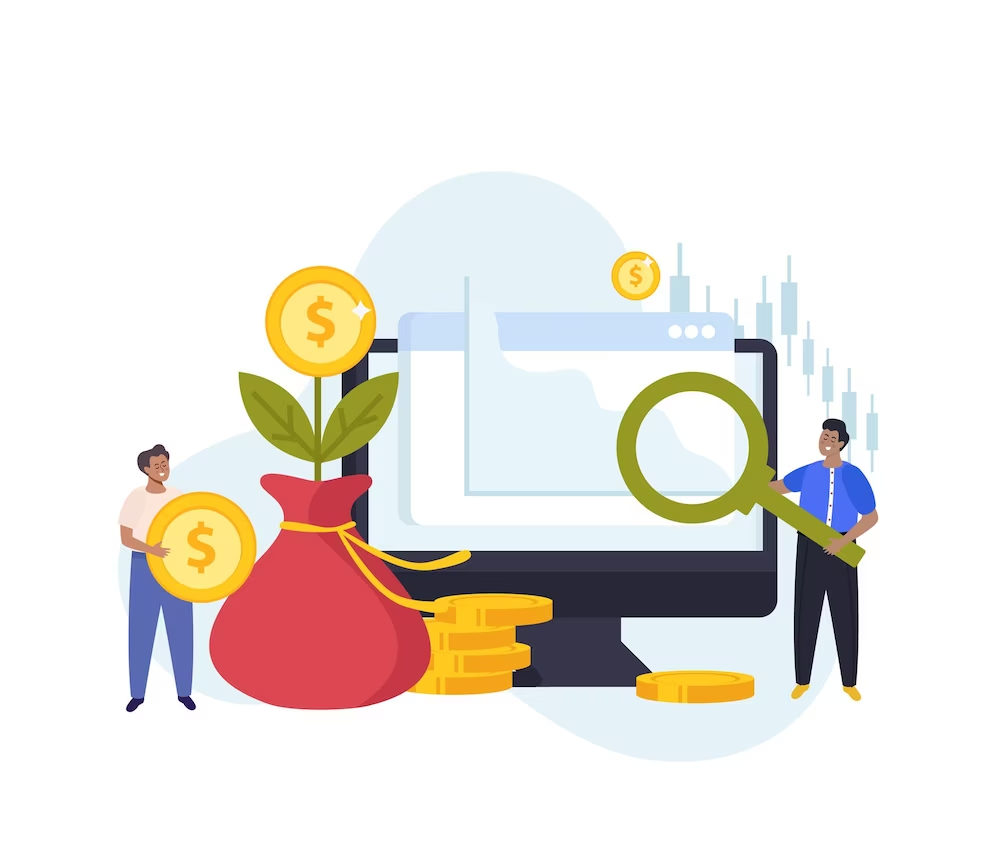
Budgeting for Google Ads
Setting a well-defined budget is crucial for effectively managing your Google Ads campaign. By carefully allocating your budget and optimizing your spending, you can maximize the impact of your advertising efforts. Here are some critical strategies for budgeting in Google Ads:
Define Your Advertising Goals
Before determining your budget, clearly define your advertising goals. Are you aiming for brand awareness, lead generation, or direct sales? Understanding your objectives will help you allocate your budget more effectively.
Evaluate Your Target Audience
Analyze your target audience and their online behavior. Consider demographics, interests, and search trends to identify the best opportunities for reaching your potential customers.
Determine Your Ad Spend
Assess your financial resources and determine your maximum monthly amount on Google Ads. Be realistic about what you can afford and ensure it aligns with your marketing budget.
Start With a Test Budget
If you’re new to Google Ads or uncertain about the optimal budget, consider starting with a test budget. This allows you to experiment with different campaigns, keywords, and ad formats while closely monitoring their performance.
Allocate Budget to High-Performing Campaigns
As you gain insights into campaign performance, allocate a larger portion of your budget to campaigns that generate better results. Focus on maximizing the return on investment (ROI) by investing more in campaigns that yield higher conversion rates and revenue.
Monitor and Adjust
Continuously monitor your campaigns’ performance and make adjustments based on data insights. Identify underperforming campaigns or keywords and reallocate your budget to areas with higher potential.
Consider Seasonal Trends
Consider any seasonal or industry-specific trends that may impact your budget. Allocate more resources during peak seasons or when demand for your products or services is higher.
Leverage Ad Scheduling and Bid Adjustments
Use ad scheduling to display your ads when your target audience is most active. Additionally, utilize bid adjustments to allocate a higher budget for specific days, hours, or devices that drive better performance.
Test and Optimize
Continuously test different elements of your campaigns, such as ad copy, landing pages, and targeting options, to identify what works best for your audience. Optimize your campaigns based on these insights to improve efficiency and cost-effectiveness.
Track ROI and Adjust Accordingly
Regularly measure your return on investment (ROI) by analyzing conversion data, revenue, and other relevant metrics. Adjust your budget allocation based on campaigns with the highest ROI and discontinue or optimize underperforming ones.
Remember that Google Ads allows you to control your spending and set a maximum daily or monthly budget. By monitoring your campaigns closely and making data-driven decisions, you can make the most of your allocated budget and achieve your advertising goals effectively.
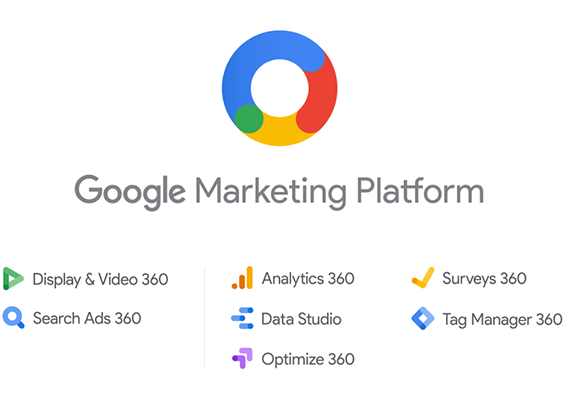
Bid Management and Automation in Google Ads
Managing your bids effectively are critical to optimizing your Google Ads Campaigns and maximizing your return on investment (ROI). With various bid management strategies and automation features, you can streamline your bidding process and make data-driven decisions. Let’s explore how these elements can help you make the most out of your Google Ads Campaigns while considering the following factors:
Monthly Google Ads Spend: When managing your bids, it’s essential to consider your monthly ad spend. You can allocate your budget strategically across campaigns and keywords by determining your spending limit.
PPC Campaigns: Bid management is vital to your pay-per-click (PPC) campaign. By optimizing your bids, you can drive better ad placements and increase the chances of clicks and conversions.
Google Ads Account: Bid management is carried out within your Google Ads account. Utilize the available tools and features to adjust your bids, track performance, and make informed decisions.
Google Ads Auction: Bidding takes place in the Google Ads auction system. Understanding how the auction process works can help you determine optimal bid amounts and achieve better ad rankings.
PPC Management Software: Consider leveraging PPC management software to streamline your bid management process. These tools offer automation capabilities, bid optimization algorithms, and performance tracking to enhance campaign management.
Google Ads Pricing Varies: Remember that Google Ads pricing varies based on keyword competitiveness, ad relevance, and quality score.
Ad Campaigns: Bid management directly impacts the success of your campaigns. You can optimize your campaigns by strategically adjusting bids for better performance and ROI.
PPC Advertising: Bid management is an integral part of PPC advertising. Effectively managing your bids allows you to control costs, improve ad positions, and maximize ad exposure.
Bidding Strategies
Bid management involves setting the right maximum bids for your keywords to achieve your desired campaign goals while staying within your budget. Here are some key aspects to consider regarding bid management:
Manual Bidding
With manual bidding, you have complete control over setting maximum keyword bids. This approach allows you to adjust based on performance data and specific campaign goals. Monitor your campaigns regularly and adjust bids to optimize performance and achieve the desired return on ad spend (ROAS).
Automated Bidding
Google Ads provides several automated bidding strategies that leverage machine learning algorithms to optimize bids automatically. These strategies include Target CPA, ROAS, Maximize Conversions, and Enhanced Cost-Per-Click (ECPC). These automated bidding options adjust bids in real-time based on historical performance, user intent, device, time of day, and location.
Conversion Tracking
Implement conversion tracking within Google Ads to measure user actions on your website, such as purchases, form submissions, or sign-ups. By tracking conversions, you can optimize your bidding strategies to prioritize keywords or campaigns that drive the most valuable actions for your business.
Bid Adjustments
Utilize bid adjustments to fine-tune your bids for specific factors that impact performance. Adjust bids based on device type (mobile, desktop, or tablet), location, time of day, or audience demographics. This allows you to allocate your budget more efficiently and maximize the impact of your ads.
Smart Bidding
Smart Bidding combines automated strategies with machine learning algorithms to optimize bids based on your campaign goals. Smart Bidding strategies include Target CPA, Target ROAS, Maximize Conversions, and Enhanced Cost-Per-Click (ECPC). These strategies adapt bids in real-time to deliver the best possible results.
Experiment with Bid Strategies
Google Ads provides an experimental feature that allows you to test different bidding strategies against a portion of your traffic. This feature helps you evaluate the performance of alternative bid strategies before implementing them fully. You can gain valuable insights and make informed decisions about your bidding approach by running experiments.
Auction Time Bidding
Google Ads utilizes an ad auction process where bids are adjusted dynamically for each auction. This enables you to compete more effectively in real-time and increases the chances of achieving a higher ad rank.
Bid Simulator
The Bid Simulator tool in Google Ads estimates the potential impact of bid changes. It allows you to explore different bid scenarios and their possible outcomes, helping you make more informed decisions about your bidding strategy.
Regular Monitoring and Optimization
Continuously monitor the performance of your campaigns and analyze bidding data. Identify trends, opportunities, and areas for improvement. Make bid adjustments based on the performance data to ensure your campaigns are on track to meet your goals.
You can streamline your campaign management and improve overall performance by effectively managing your bids and leveraging automation features in Google Ads. Experiment with different bidding strategies, monitor performance and optimize your bids based on data insights to maximize your return on investment (ROI).
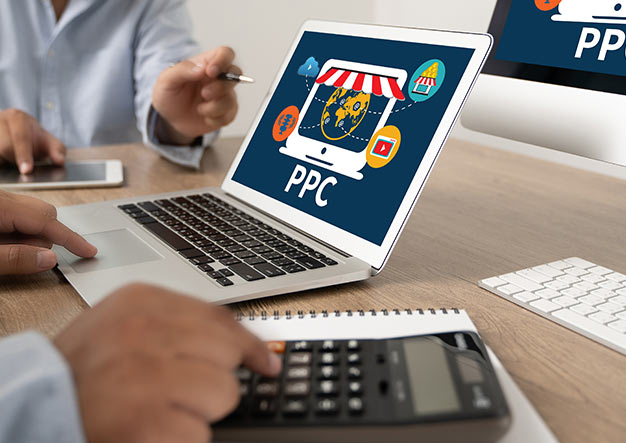
Partnering With a PPC Agency
Running successful Google Ads campaigns requires expertise, time, and ongoing optimization; partnering with a PPC (Pay-Per-Click) agency can make a significant difference. Let’s explore the benefits of contracting PPC management services and how they can maximize the effectiveness of your Google Ads campaigns.
Expertise and Industry Knowledge
One of the primary advantages of partnering with a PPC agency is gaining access to a team of experts who specialize in managing Google Ads campaigns. These professionals deeply understand the platform’s intricacies and the ever-evolving digital advertising landscape. Their knowledge and experience can provide valuable insights, strategies, and tactics to optimize your campaigns.
PPC agencies stay updated with industry trends, best practices, and algorithm changes. They understand the nuances of keyword research, ad copywriting, bid management, and campaign optimization. By leveraging their expertise, you can ensure your campaigns are tailored to your target audience, driving higher click-through rates and conversions.
Cost-Effective Campaign Management
Managing Google Ads campaigns requires effective budget allocation and bid management to maximize your return on investment (ROI). PPC agencies deeply understand how to optimize ad spending to achieve the best results while staying within budget constraints.
These agencies employ advanced strategies to identify the most valuable keywords for your business and allocate your budget accordingly. They conduct thorough keyword research to target relevant and high-performing keywords relevant to your campaign objectives. By optimizing bids and monitoring performance, PPC agencies can minimize wasteful spending and ensure your budget is utilized efficiently.
Advanced Tools and Technology
PPC agencies have access to sophisticated tools and technology that enable them to streamline campaign management and optimization. These tools provide valuable insights into keyword lists, ad positions, and audience behavior. By utilizing data-driven insights, PPC agencies can make informed decisions to optimize their campaigns continuously.
Additionally, PPC agencies stay updated with the latest PPC management tools and platforms advancements. They are familiar with features and functionalities that enhance campaign performance, such as ad extensions, remarketing campaigns, and audience targeting options. By leveraging these tools and technologies, PPC agencies can drive better results and stay ahead of the competition.
Continuous Campaign Optimization
Successful Google Ads campaigns require ongoing optimization and monitoring. PPC agencies have dedicated teams that regularly analyze campaign performance, make data-driven adjustments, and refine strategies to improve results.
These agencies conduct A/B testing to compare ad variations, landing pages, and targeting options to identify the most effective elements. They monitor vital metrics such as click-through rates (CTRs), conversion rates, and cost per acquisition (CPA) to identify areas for improvement and implement necessary changes. By continuously optimizing your campaigns, PPC agencies can help you stay ahead of your competitors and maximize your ROI.
GamerSEO is a leading PPC agency specializing in digital advertising and paid search campaigns. With a team of experienced professionals, we provide comprehensive PPC services tailored to the unique needs of our clients. From strategic campaign planning and keyword research to ad creation and bid management, GamerSEO will help you maximize your online visibility, drive targeted traffic, and achieve optimal ROI. With an expertise in PPC advertising, GamerSEO is a trusted partner for businesses looking to enhance their online presence and generate measurable results through PPC campaigns.
Conclusion
Google PPC pricing plays a crucial role in determining the success of your advertising campaign. Understanding the cost structure and factors influencing pricing is essential for making informed decisions and optimizing your budget allocation. With Google Ads costs varying depending on keyword competitiveness, ad placement, and audience targeting, planning and strategizing your campaigns is essential.
Google Ads pricing may fluctuate over time, so it’s important to stay vigilant, adapt your strategies, and continuously optimize your campaigns to achieve the best possible results. With the right approach and resources, Google PPC can be a highly effective tool for driving targeted traffic, generating leads, and boosting conversions for your business.
Partnering with a PPC agency offers numerous benefits that can take your Google Ads campaigns to new heights. By tapping into their expertise, industry knowledge, and access to advanced tools, you can optimize your campaigns for maximum performance and achieve better results. With their cost-effective campaign management strategies and continuous optimization efforts, PPC agencies provide a valuable resource for businesses looking to maximize their Google Ads investment and drive success in digital advertising.

A PPC specialist who started with organic social media. For several years, the core of his activities are:- Google Ads, Microsoft Ads, Meta Ads, TikTok Ads, Twitter Ads, Linkedin Ads. He has led campaigns with a global reach, e.g. for FootballTeam, G2A, ETOTO, as well as many smaller campaigns in the sports, construction and financial industries. Has full focus on ROAS. Privately, a fan of football, history of wars and Star Wars.

